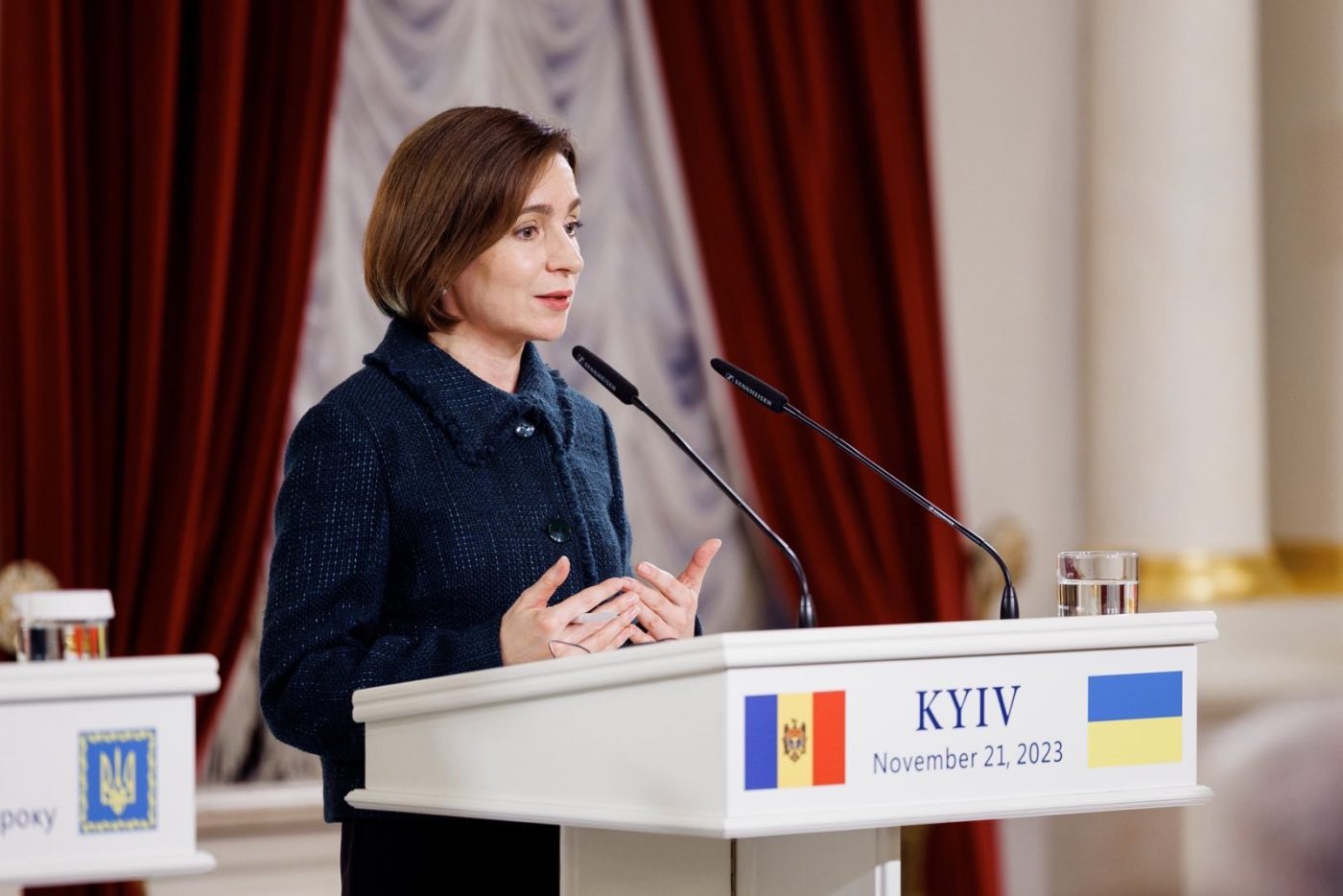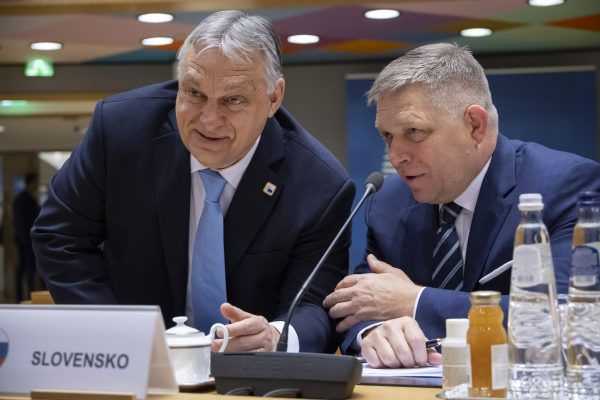“Moldova is destined to become the next victim in the hybrid war unleashed by the West against Russia,” declared Foreign Minister Sergei Lavrov, with masterful gall, at the Organization for Security and Cooperation in Europe (OSCE) Ministerial Summit on November 30. The framing carried an air of menace: a very similar formulation was used as the casus belli for Russia’s all-out war of aggression against Ukraine.
In the recent past, a threat like this would have triggered immediate concern in Chișinău, However, Lavrov’s anger this time was a response to Moldova’s bold decision to impose sanctions on Russia. Witnessing its declining military might, and having finally disentangled its economy from Russia’s, Moldova is asserting itself against the Kremlin as never before. Moldova’s former bully seems unable to conjure a response, beyond the now-familiar bluster.
In the heady days before the invasion, Russian analysts spoke of “reuniting” Transnistria — the sliver of Moldova that it has illegally occupied since 1991 — with the rest of the country. But as the reality of the war became clear, and Russia’s troops failed to break through to the border as hoped, they believed the destabilization of the pro-Western government in Chișinău by the FSB and other Russian agencies could serve as consolation.
The war itself led to recession and a flood of refugees in Moldova, resulting in widespread discontent and the dissolution of President Maia Sandu’s first government. Beyond creating the crisis, Russia has done all in its power to exacerbate the situation from funding mass protests to import bans to hiking gas prices to allegedly organizing an attempted coup.
Yet the president seems to have weathered the worst of it, with the economy recovering and alternatives to Russian gas suppliers secured. With her new cabinet, Sandu has determinedly pursued further cooperation with the European Union (EU), culminating in the announcement on November 8 that the bloc will begin negotiations on Moldovan accession. The sanctions against Russia followed.
The sanctions represent a turning point in the relationship. During the era of Soviet domination, the entire Moldovan economy was built to suit Moscow’s needs, resulting in a near-total reliance on Russian trade. In 1995, Moldovan imports from Russia amounted to $252m (14% of GDP) and exports $360m (20%). In 2021, the most recent for which reliable numbers are available, that percentage had dropped to 7.1% for imports from Russia and 2% for exports.
That demonstrates the success of Moldova’s business sector in diversifying, despite opposition from the occasional pro-Russian government, extensive efforts by pro-Western governments, and the astronomical growth of Romania (GDP has expanded 7.5-fold since 1990), which is now Moldova’s top trading partner.
Though more recent numbers are not available, the war has almost certainly accelerated the trend toward a country free from Russian economic domination. The Moldova of two decades ago could hardly imagine actively sanctioning Russia.
Russia has responded with indignation. Nikolai Starikov, leader of the socialist SRZ party, called the move “a national betrayal . . . a direct path to escalation and war.” Alexey Zhuravslov, a Duma deputy with the nationalist Rodina party, warned: “If someone rocks the boat on the PMR [Transnistria], it will give us a free hand.” A host of state radio station Vesti FM was explicit — Sandu “is clearly dragging the country either towards war or towards loss of independence.”
The verbal denunciations from Moscow seemed to have little impact on Moldova’s government, which issued an insouciant statement. “We hope that our clear message will be understood by Foreign Minister Lavrov,” the country’s Ministry of Foreign Affairs declared. “Moldova is moving, irreversibly, onto the European path.”
Sandu is far from a shoo-in for reelection. Her approval rating is in the 40s, but the opposition is fractured. Polls have Sandu 15 percent points ahead of Igor Dodon, who led the most recent pro-Russian government. Dodon responded to Lavrov’s threat by blasting Sandu for threatening the country’s neutrality and sovereignty.
Russian threats of retaliation have so far amounted to a ban on Moldovan fruit, which Moscow had already banned a year ago. Where Russia could once dictate terms to Moldova through economic dominance, especially gas supplies, and the troops stationed across the Dniester, the war has proven Russia a paper tiger both militarily and economically.
Russia will deploy all its economic and information resources to attempt to oust Sandu in next year’s elections, but even then, the likelihood that the country will submit to Russia is weaker than ever.
Ben Dubow is a Nonresident Fellow at CEPA and the founder of Omelas, which tracks authoritarian influence online.
Europe’s Edge is CEPA’s online journal covering critical topics on the foreign policy docket across Europe and North America. All opinions are those of the author and do not necessarily represent the position or views of the institutions they represent or the Center for European Policy Analysis.





